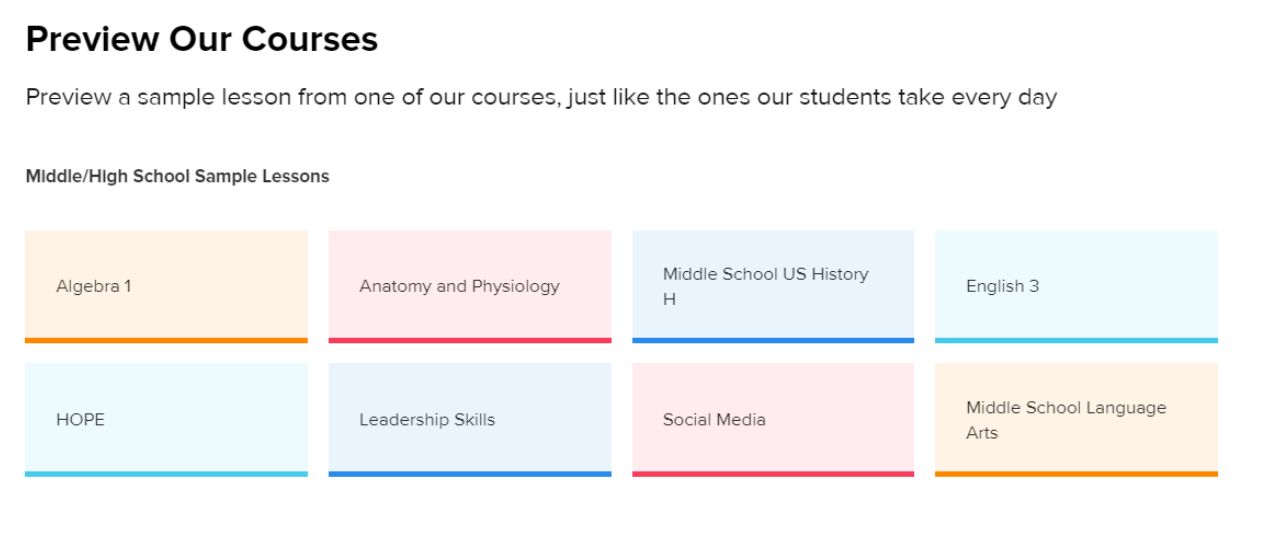Contents
- 1 Defining Online Schooling
- 2 Structured Curriculum and Qualified Teachers
- 3 Timetable for Classes and Educational Technologies
- 4 Benefits of Personalized Learning and Flexibility
- 5 Enrollment Process for Online Schooling
- 6 Benefits of Online Schooling
- 7 Potential Challenges in Online Schooling
- 8 Support and Resources in Online Schooling
- 9 Selecting a Suitable Online School
- 10 Check out Legacy Online School programs to find what you need:
What is online schooling? Online schooling is a method of learning where all instruction takes place over the internet and offers convenience of not having to physically attend classes.
Defining Online Schooling
Online schooling includes educators setting class schedules and structured coursework. Online education offers the convenience of not having to physically attend classes. Students get to engage in their studies from the coziness of their homes using a computer or tablet by following interactive classes with a structured approach.
Online classes are not suitable for every child due to the need for self discipline, effective time management, and parental involvement. Parents and students must always check the institution’s curriculum quality and teacher credentials to choose the best school.

Structured Curriculum and Qualified Teachers
The course syllabus is a meticulously crafted guide for everything students will study in their courses. Experts to guarantee students grasp all the required concepts. This ensures that families’ resources and teachings are well structured allowing students to progress systematically like in a classroom setting.
Online schools have real teachers, who students can ask questions live for clarification and to succeed in their challenges. Online educators are specially trained to teach online lessons. They know how to make sure students understand everything through digital education.
Visit our website to explore the many opportunities at Legacy Online School and check out how we introduce our own teachers by following the “Our Teachers” link here!

Timetable for Classes and Educational Technologies
Students will manage their timetables with added flexibility by studying at an online school. There are set times for logging in and attending classes. Students will have the flexibility to decide when to work on assignments within allocated time slots to support students with additional commitments like extracurriculars and part-time jobs.
Online schooling is possible thanks to education technological tools that include videos, education games, live video calls, and online platforms.

Benefits of Personalized Learning and Flexibility
Online schools are a unique experience for each student. Digital education provides students with flexibility in their learning by allowing them to allocate time for easier and harder subjects. A student can choose to quickly finish subjects he/she understands quickly and then use a longer period of time to work on challenging subjects.
Online education is tailored to each student by making it a personalized learning experience. This personalization provides unparalleled opportunities for students to engage with their education in unique and accommodating ways.
E-Dynamic Learning’s interview with several instructors who teach online shows the benefits of personalized learning and perspective from the teachers’ mouth. One of the testimonials by Anthony White says:
“The flexibility found in the […] curriculum really helps to develop customized learning experiences. Furthermore, the eDynamic team is always ready to support you with any needs you may have.”
Enrollment Process for Online Schooling
It is essential to understand the enrollment process for online schools. There are several important steps any family and any student must go through listed below.
Research Potential Schools
- Families must seek out accredited institutions. Accreditation guarantees the school upholds quality benchmarks and underlines credibility of a student’s education.
- Online programs must contain programs that match a student’s and a family’s wishes.
- Students must explore the course curriculum and teaching methods to ensure they resonate with their learning style and objectives.
- Any person who wants to enroll must read reviews and testimonials to gain insights about the program.
Application and Admission
- Proceed to check out specific requirements provided by the chosen institution.
- Review and follow outlined application guidelines.
- Guidelines may include submitting academic records, completing standardized admission tests, writing essays, obtaining letters of recommendation, and providing any other necessary documents.
- Pay close attention to deadlines and admission tests.
- Reach out directly to the admissions office for clarification if there are any ambiguities about requirements and processes.
Enrollment Confirmation
- Accept or admit your spot after enrollment confirmation.
- Pay tuition fees or deposits.
- Fill out needed forms and provide required documents to the institution to prove the student will join the program.
- Meet all confirmation deadlines to guarantee a spot in the program.
- Finalize details like selecting courses/programs and create a schedule that aligns with academic/personal commitments.
Benefits of Online Schooling
Online schooling has gained traction for good reason – it offers a variety of unique advantages for students.
Personalized Learning
- Education adjustment based on a student’s learning needs.
- Students can move through the material at their own speed.
- Support with challenging educational content.
- Improvement is continuous because teachers provide custom assistance tailored to each student.
- Students will excel in areas where they are strong and receive support in areas they struggle.
Flexibility
- Students will balance their coursework with extracurricular activities or part-time jobs.
- No rigid schedules.
- No commuting.
- Cultivation of time management skills.
Potential Challenges in Online Schooling
Online schooling offers numerous advantages, but it also presents unique challenges. Let’s delve into these challenges and explore how they can impact the learning experience.
Limited Face-to-Face Interaction
- Possible absence of engagement in spontaneous discussions, group activities, and social interactions similar to traditional classroom settings.
- Lack of fostering of important social skills like teamwork, collaboration, and conflict resolution.
- Online platforms may not provide avenues for virtual communication and have a challenge in replicating traditional school environments.
- Limited interactions may hurt a student’s ability to form close relationships.
Technical Hurdles
- Students may encounter various technological issues that could disrupt their learning process.
- Unstable internet connectivity, device compatibility, and navigating complex online learning platforms can pose significant obstacles.
- Not all students have access to reliable internet or compatible devices.
Practical Skill Development
Online education offers subjects that can be effectively taught in a virtual environment, but certain hands-on experiences will pose a challenge for students. Laboratory experiments in science courses or industrial training in vocational programs rely on physical interaction, which virtual education does not provide.
Recreation of practical aspects within the digital environment is a challenge that institutions attempt to solve with virtual simulations and interactive tools. Online education enhances certain aspects of practical skill development through technological advances but there is still a distinct difference between hands-on experience and digital replication. Students will be challenged to fully grasp practical concepts and acquire essential skills without physical presence in necessary subjects.
Educators continue to explore innovative methods to integrate more hands-on activities into virtual learning environments while ensuring students receive comprehensive instruction and practical skill development.
Support and Resources in Online Schooling
Virtual education offers a variety of online support and resources for students. There are several provided support resources listed below.
Academic Support
- Guidance from teachers, tutors, and academic advisors on study schedule, effective learning strategies, and offer of valuable feedback on assignments.
- Provision of assistance with course materials, assignments, and academic progress.
- Presence of virtual office hours, email correspondence, or live chat sessions.
Technology Assistance
- Aid with using education technologies, troubleshooting technical issues.
- Guidance on utilizing software for assignments or projects.
- Access to digital libraries.
- Leverage of virtual classrooms for interactive learning experiences.
- Support team assistance to help students have a smooth educational experience.
Community Engagement
- Students connect in forums, group assignments, and virtual clubs by sharing common interests and education discussions.
- Community engagement continues by having access to peer support outside of regular academic interactions.
Selecting a Suitable Online School
There are several important factors to consider choosing a suitable online program for a student. The key factors are listed below.
Accreditation and Recognition
Accreditation confirms that the school adheres to quality standards and offers respected education. Online programs must seek out accreditations from organizations like the United States Department of Education or any other accrediting organization.
Accreditation validates authenticity of the program and ensures credibility of the education. It signals to employers, other schools, and licensing boards that a school’s education meets set criteria.
Course Offerings
The range of courses and subjects offered by an online school is a pivotal factor in determining its suitability for educational and career goals. Students must consider the variety of courses, specializations, and extracurriculars. They are available to cater to each student’s interests and potential careers.
A comprehensive evaluation of course offerings allows families to understand the depth and breadth of the academic programs available. Online schools can offer diverse disciplines including arts, sciences, business, healthcare, and technology. They can additionally include other fields useful to students’ ambitions.
Legacy Online School provides a diverse set of courses you can check out by pressing the click here. Legacy’s courses might fit your child’s interests! Here is a hint of what any parent can see on the website, but check out more by clicking this link to go into the academics Legacy offers.

Technology and Infrastructure
Technological features are crucial for enhancing learning processes in online education. Families must assess the school’s learning platform, virtual classroom tools, and digital library resources to ensure they have all the support and resources for digital education.
The effectiveness of an online school heavily relies on its technological infrastructure. An intuitive platform enhances students’ interaction with course materials and assignments, while virtual classroom tools enable real-time engagement with instructors and peers. An extensive online library with diverse resources fosters independent research and academic exploration.
Check out Legacy Online School programs to find what you need:
- Legacy Online School’s elementary school program sets the bar high. This is a quality education. We strive to ignite curiosity. We also strive to foster creativity. We offer a strong curriculum. We are assisted in this by qualified educators.
- Legacy Online Middle School provides digital education. It is designed for middle school students. The school prides itself on offering live online classes taught by certified teachers. The classes are online and interactive.
- Legacy Online High School is a unique method of online learning carefully designed for high school students. It combines synchronous learning, a wide range of pedagogical methods, and an emphasis on accessibility.
Legacy Online School offers the best curriculum for you and your child to get the best online educational experience.
Our rigorous curriculum ensures that graduates are well prepared for universities and workplaces around the world. In addition, our vibrant virtual clubs connect students all around the world.





